The Future of In-Home Care: How Apps Are Making Elderly Care More Accessible
The landscape of elder care is continually evolving, driven by a universal desire for seniors to age gracefully in the comfort of their own homes.
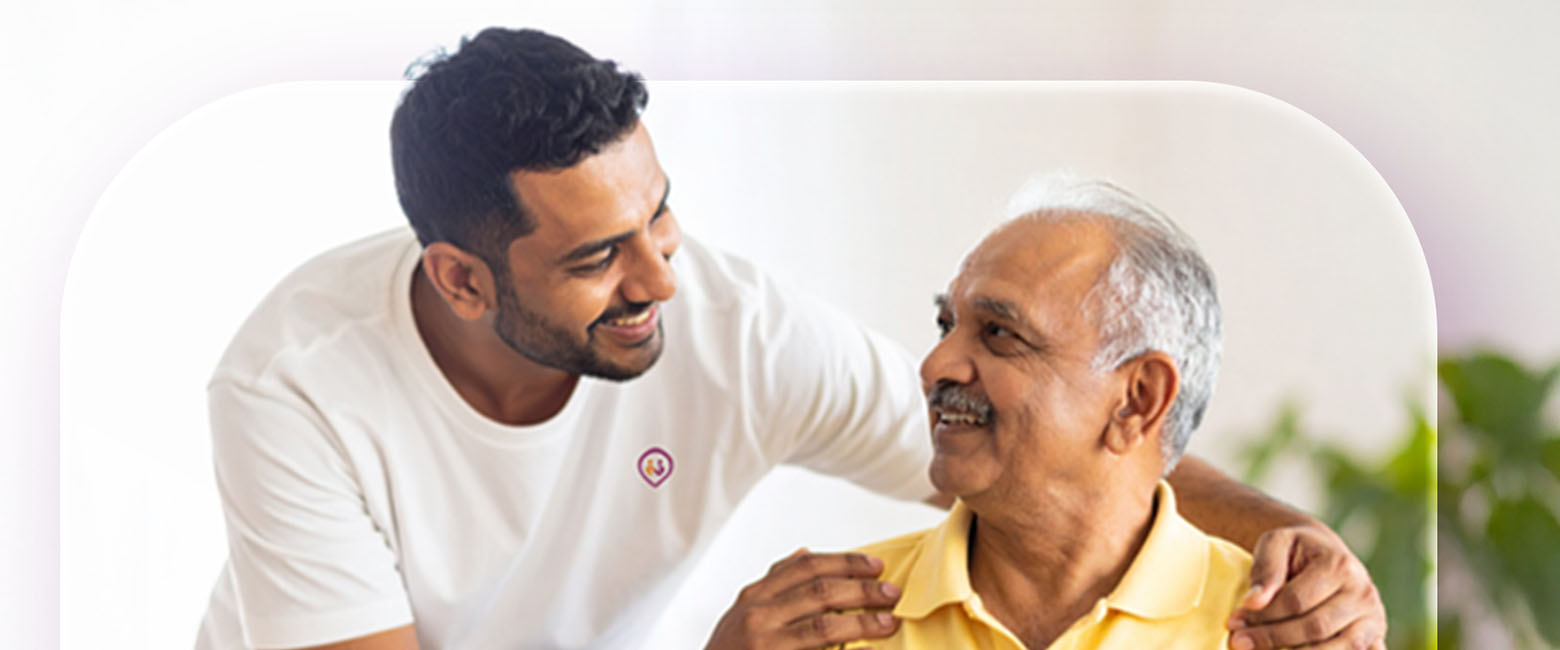
The landscape of elder care is continually evolving, driven by a universal desire for seniors to age gracefully in the comfort of their own homes. While traditional in-home care services have long been the backbone of this support, the advent of technology, particularly mobile applications, is revolutionizing how care is delivered, monitored, and accessed. The future of in-home care service apps promises unprecedented accessibility, efficiency, and peace of mind for both seniors and their families.
These innovative platforms are transforming the daily routines of elderly individuals, bridging geographical gaps, and empowering caregivers with tools that enhance the quality and responsiveness of care.
Revolutionizing In-Home Care with Technology
In home care service Apps are becoming central to modern elder care by addressing key challenges and offering a multitude of benefits:
1. Enhanced Communication & Coordination:
How it Helps: Apps provide a centralized, secure platform for real-time communication between family members, professional caregivers, and even healthcare providers. Families can receive instant updates on daily activities, mood, and any changes in health. Caregivers can log tasks, share notes, and receive immediate instructions, ensuring everyone is on the same page.
Impact: Reduces miscommunication, improves coordination of care, and fosters greater transparency and trust.
2. Medication Management & Reminders:
How it Helps: One of the most critical aspects of elder care is medication adherence. Apps offer personalized medication schedules, dosage reminders, and even alerts for refills. Some advanced apps allow caregivers to log when medication was taken, providing an audit trail for family oversight.
Impact: Significantly reduces the risk of missed doses, double dosing, and medication errors, improving health outcomes and reducing hospital visits.
3. Remote Health Monitoring & Emergency Alerts:
How it Helps: Integrated with wearables (like smartwatches) or in-home sensors, these apps can monitor vital signs (heart rate, blood pressure, sleep patterns), activity levels, and even detect falls. In case of an anomaly or emergency, automated alerts are sent immediately to designated family members or emergency services.
Impact: Offers continuous peace of mind, enables early detection of potential health issues, and ensures rapid response in critical situations, allowing seniors to live more independently and safely.
4. Personalized Care Planning & Activity Tracking:
How it Helps: Apps can host personalized care plans, outlining specific needs, preferences, and goals. Caregivers can track activities of daily living (ADLs), such as bathing, dressing, and eating, providing a detailed overview of the senior's well-being over time.
Impact: Ensures consistent, tailored care delivery and helps identify subtle changes in health or routine that might indicate a need for intervention.
5. Social Engagement & Cognitive Stimulation:
How it Helps: Beyond health management, some apps offer features for social connection (video calls with family) or cognitive exercises (brain games, puzzles) to keep seniors mentally stimulated and engaged, combating loneliness and promoting overall well-being.
Impact: Enhances mental health and provides opportunities for interaction, even when direct physical presence isn't possible.
MobiCrew: Integrating Mobility into the Digital Care Ecosystem
While in-home care service apps excel at managing care within the home, mobility remains a crucial aspect of independent living. This is where MobiCrew seamlessly integrates into the modern elder care ecosystem, complementing the digital advancements:
Accessible Transport on Demand: Apps can schedule care at home, but when it's time for an outside appointment (doctor, therapy, social outing), MobiCrew provides the reliable, wheelchair-accessible transport solution. We ensure that the digital care plan extends effortlessly to the physical world, making sure medical appointments are kept and social engagements are enjoyed without logistical stress.
[Book Your Accessible Ride: mobicrew.com/mobility-booking]
Companion Integration: Our trained companions can be a critical link, providing the human touch that apps cannot. They can assist with transfers, navigate outside the home, and provide real-time updates to families (which can then be logged in the care app). This human-digital synergy ensures comprehensive support.
[Find Your Dedicated Companion: mobicrew.com/companion-care]
Enhancing Overall Accessibility: By handling the "out-of-home" mobility needs, MobiCrew directly contributes to the overall accessibility that in-home care service apps aim to provide. It allows seniors to fully leverage the benefits of remote monitoring and home-based care, knowing that when they need to step out, safe and dignified transport is just a tap away.
A Smarter, More Compassionate Future
The synergy between advanced in-home care service apps and specialized mobility solutions like MobiCrew is shaping a more integrated, efficient, and compassionate future for elderly care. It means seniors can enjoy greater independence, families have more peace of mind, and caregivers are better equipped to deliver the highest standard of personalized support. As technology continues to advance, the dream of aging comfortably and confidently at home is becoming an increasingly tangible reality.
Related
-

Wheelchairs on Rent vs Purchase: Whats More Cost-Effective in Mumbai
-
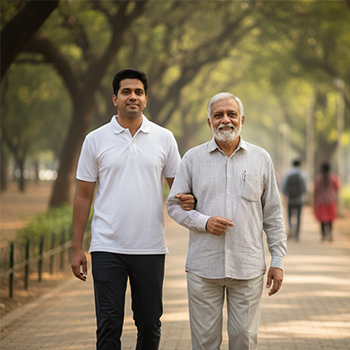
Best Senior Citizen Caretaker Services in Mumbai for Safe and Comfortable Living
-

Redefining Urban Mobility: The Rise of Accessible Transportation
-
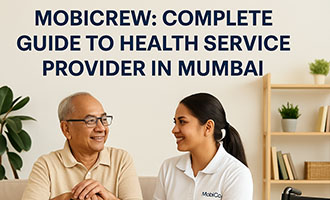
MobiCrew: Complete Guide to Health Service Provider in Mumbai - Services, Pricing & Phone Number
-
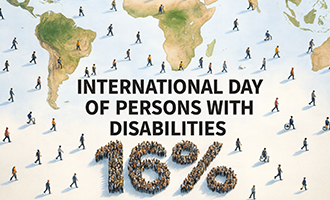
International Day of Persons with Disabilities: Why Accessibility Must Become a Daily Commitment in Mumbai
-
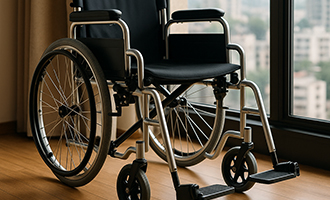
Book Wheelchair Online in Mumbai: Fast, Affordable & Hassle-Free with MobiCrew
-
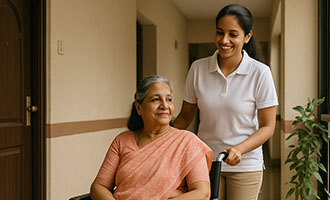
The New Era of Help for People with Disabilities: From Support to Strength









